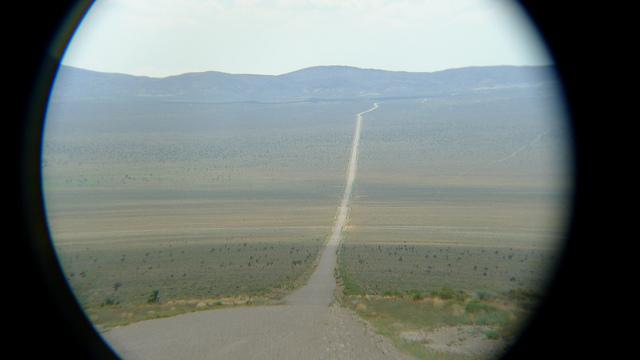
While it’s not the end of the world year just yet, most will be pleased to see it roll around. 2016 packed a punch, with some unnerving strategic discontinuities (take your pick but mainly) and the passing of some masterful musos (vale Prince, Bowie and Cohen). Jia Tolentino wrote in The New Yorker this week that 2016 was ‘the year we played ourselves,’ a snappy reference courtesy of the pop-zeitgeist-surfing DJ Khaled which Tolentino employs to classify the swelling hubris many attached to the US election outcome well before votes were cast. So with most looking foward to recharging come the end-of-year and some resolving to do better next time, here’s Bloomberg’s utterly-alarming Pessimist’s Guide to 2017, featuring all of 2016’s household names in all-new 2017 scenarios. Oy vey.
DFAT’s digital diplomacy got a shot in the arm this week with the release of their Digital Media Strategy (here’s the blog). While DFAT has been painfully slow off the mark with this one—most of our Five Eyes pals were doing this stuff five years ago—some empowered Aussie ambassadors have been shining examples, notably Dave Sharma in Israel. (See the Ambassador’s speech on the topic here, plus his blog for more on the trade’s new tools.) If you need a 101 on the challenges and opportunities of this sort of engagement, check out this classic 2010 profile on the work Jared Cohen and Alec Ross were doing for Hillary Clinton at State, who they call the ‘Godmother of 21st Century Statecraft’.
A couple of strong reads to get you closer to the holidays. The first is the latest Brookings essay, this time a meditation on the journalist’s job in these feelings-not-facts, ‘post-truth’ times. (And a bonus: the Post’s Marty Baron received the Hitchens Prize and had some thoughts for journos covering the 45th President.) Next up, two harrowing pieces on Dirty Harry’s bloody drug war: one a long read from The Monthly; the second a disturbing human-centric interactive from The New York Times. And reporting from the frontlines of the effort to curb the Caliphate, Robin Wright looks at who will assume the mantle of Sunni jihadism when ISIS eventually crumbles.
It’s been another great week for research offerings from around the world, but we’ll kick off just up the road from ASPI HQ with the Lowy Institute’s latest, which argues that Indonesia and the Jokowi administration should invest more resources in its diplomatic efforts relating to the South China Sea. Nick Bisley’s new report for the National Bureau of Asian Research examines Australia’s strategic culture and asks whether it will remain driven by anxiety and dependence into the future. Looking a little further north, a new RAND report recommends closer collaboration between China and the US as the pair seek to increase influence and improve security in the Middle East. A good short read from RSiS focuses on the regional implications of Bangladesh’s decision to purchase two Ming-class submarines from China. And in its latest report, the Atlantic Council checkson the state of the EU and US’s sanctions on Russia following its aggressive behavior in 2014.
And finally, a great read from The Drive examines the plight of Nevada-based family the Sheahans, whose property has been part of their heritage for over 130 years, but also happens to overlook the most poorly kept secret in US military history, the US Air Force’s flight test center Area 51. An intense legal battle over the property’s value as the US government tries to seize it has ensued, with USAF estimating its worth at US$333,300—a slightly lower figure when compared with the Sheahan’s offer of $5.2 million.
Podcasts
CSIS’s excellent ‘About the News’ podcast this week hosted a chat with Yves Daccord (38 mins), Director General of the International Committee of the Red Cross, about journalism in war zones on the back of the organisation’s just-released 2016 People on War report.
Defence Connect has recently launched a new podcast series that dives into the ADF’s relationship with defence industry across various platforms and interest areas. The most recent in the series (30 mins) takes a look at RAAF’s Plan Jericho, where group Captain Pete Mitchell confirms the importance of the role industry will play in delivering Australia its fifth-generation fighting force.
Video
Session One of CSIS’s Global Security Forum, held on 1 December, focused on a poignant topic: navigating 21st century security challenges. Catch up with what Former Secretary of Defense and the CIA Leon Panetta and Chairman of the House Armed Services Committee Mac Thornberry had to say on the topic in this footage from the event (1hr 9 mins).
Events
Canberra: Come along to the Women in Defence and Security Network’s final event for 2016, An Evening with Katherine Campbell, Secretary of the Department of Human Services. Campbell will be along to chat about her experiences delivering reform in DHS’s service-driven environment.
Washington DC: For those of you heading to colder climes over the festive season, we’d recommend checking out this upcoming event on the future of the US–Japan relationship over at Brookings in DC. On 14 December, a panel of experts will map out pressure points for the bilateral relationship—ranging from the TPP to regional nuclear proliferation. Register today.